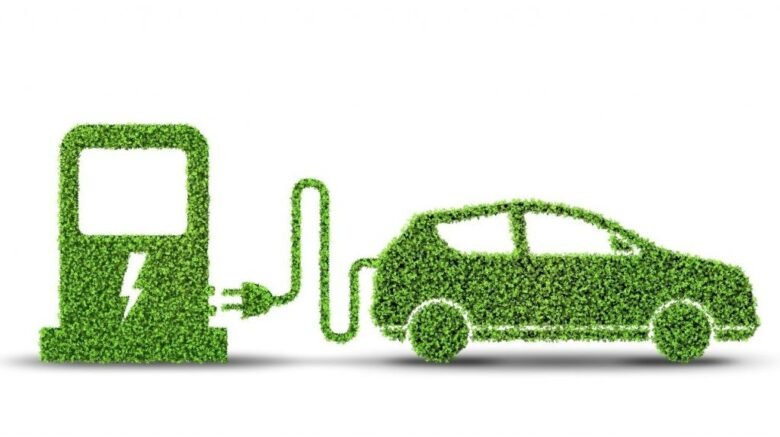Electric vehicles (EVs), recently, have been one of the most talked about innovations in the transport industry. EVs have been hailed as a solution for reducing carbon emissions from traditional gasoline- and diesel-powered cars. Since carbon emissions are a major contributor to global warming and transportation is responsible for a large portion of greenhouse gas emissions, it’s important to identify an alternative. Electric vehicles use electricity instead of fossil fuels to reduce the amount released into the air. This change improves air quality and helps combat climate change.
The Environmental Impact of Conventional Vehicles
The traditional internal combustion engines of vehicles rely on fossil fuels such as petrol and diesel. These fuels emit large quantities of carbon dioxide, as well as other harmful gases like nitrogen oxides and particulate matter. These emissions are responsible for the greenhouse effect. They trap heat in the air and cause global temperatures to increase. The process of mining, refining, and transporting fossil fuels also adds to pollution. The concentration of vehicles that run on fuel in urban areas can lead to poor air quality, which leads to respiratory problems and other health issues. The use of conventional vehicles perpetuates the cycle of pollution and resource exhaustion. Therefore, the switch to electric vehicles is urgently needed.
How Electric Vehicles Operate Differently
Electric vehicles are powered using rechargeable batteries. These batteries store electricity and then use it to power electric motors. Unlike combustion motors, which use fuel to generate mechanical power, EVs directly convert electrical energy into motion. This approach is a more efficient method. Since EVs don’t burn fossil fuels to produce power, they emit zero emissions from their tailpipes. The vehicle will not emit any carbon dioxide, nitrogen oxides, or carbon monoxide while it is running. Electric vehicles can now travel further on a single battery charge thanks to advances in battery technology. This makes them more convenient for daily use. Electric vehicles are not only a new fuel source but also a radical change in how we view transportation efficiency and environmental responsibility.
Reduction in Greenhouse Gas Emissions
Electric vehicles reduce greenhouse gases, which is one of their greatest benefits. Electric vehicles can be powered with electricity generated from renewable sources like wind, solar, or hydroelectric power. Even when they are charged with electricity from non-renewable resources like coal or gas, EVs tend to emit less overall carbon than traditional vehicles. Electric motors are more efficient than combustion engines and convert a higher percentage of energy to motion instead of wasting it in heat. Electric vehicles emit less carbon dioxide over their lifetime, even when they are manufactured and used to generate electricity. The environmental benefits of EVs are expected to continue growing as more countries switch to clean energy grids.
Renewable Energy and EVs: The Role of Renewables
Renewable energy sources pair with electric vehicles to make them truly environmentally friendly. By charging an EV with electricity produced by wind turbines or solar panels, the entire energy cycle is kept clean. To make these improvements happen, many countries invest heavily in renewable energy infrastructure. Carbon emissions from driving electric vehicles are decreasing each year. EV owners can also charge their vehicles using solar panels at home, allowing them to achieve complete energy independence and reduce their carbon footprint. Both governments and companies are working together to create more renewable-powered chargers, creating a sustainable ecosystem for electric mobility.
The Impact of Urban Environments
Electric vehicles are a positive influence on cities and urban areas. Electric vehicles (EVs) emit no exhaust gases, so they help to create a healthier environment and cleaner air. The shift to electric vehicles can improve air quality in cities with heavy traffic. Quieter electric engines also reduce noise pollution and create more peaceful urban environments. Many urban areas have also implemented EV-friendly policies, such as low emission zones and dedicated charging facilities. These measures are not only environmentally friendly, but they also improve the quality of living for residents. Cities become more sustainable and livable.
Future of Electric Vehicles & Carbon Neutrality
Electric vehicles are set to have a bright future as the technology advances. EVs are becoming more appealing and practical for consumers around the world due to innovations in battery capacity, vehicle range, charging speed, etc. Many automakers have invested billions in developing new electric models, and some have committed to converting their entire fleets over to electric power within the next few years. The collective reduction of carbon emissions as more people switch to EVs will be a key factor in achieving the carbon neutrality goals that governments and environmental groups have set. Electric mobility, renewable energy, and sustainable manufacturing will help create a greener, cleaner world for future generations.
Conclusion
Electric vehicles have proven to be an effective solution in the battle against climate change. Electric vehicles are a major step towards a sustainable future by reducing dependence on fossil fuels. Despite the challenges of battery production and infrastructure, global cooperation and continuous progress are bringing about positive changes. As renewable energy becomes more widespread and technology advances, the environmental benefits of EVs will only grow. Electric vehicles are not only about driving cleaner cars but also about taking responsibility for our planet and creating a more sustainable future.
FAQs
1. Are electric vehicles carbon-emitting?
The electricity that is used to charge electric vehicles can produce indirect emissions. Even when powered by fossil fuel grids, EVs emit fewer carbon emissions than gasoline cars.
2. How can EVs combat climate change?
By eliminating the burning of fossil fuels that are a major contributor to global warming, EVs help reduce greenhouse gases. Over time, as they harness more renewable energy, their impact on climate protection will intensify.
3. Is the use of electric vehicles sustainable?
Electric vehicles are becoming more sustainable throughout their lifecycle, although manufacturing EV batteries is an environmentally damaging process.
4. What role does renewable power play in EV effectiveness
The use of renewable energy for EV charging significantly increases the environmental benefits. The combination of these two factors results in minimal emissions, from production to use.
5. Can electric cars replace gasoline vehicles?
Electric vehicles are expected to replace conventional cars gradually as technology advances and costs fall. This transition will accelerate in the next decade as government support and consumer demands increase.



